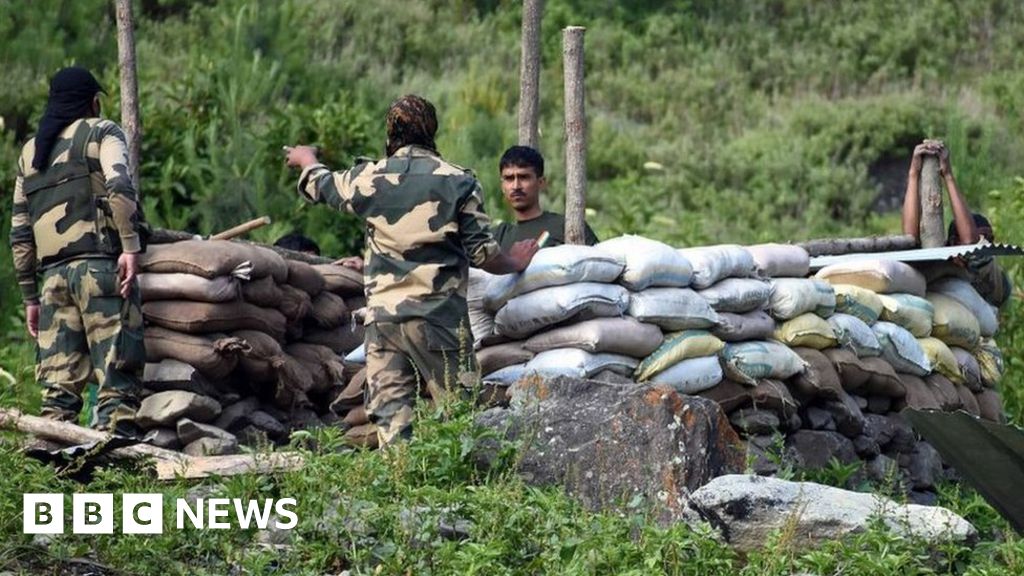Install the app
How to install the app on iOS
Follow along with the video below to see how to install our site as a web app on your home screen.
Note: This feature may not be available in some browsers.
You are using an out of date browser. It may not display this or other websites correctly.
You should upgrade or use an alternative browser.
You should upgrade or use an alternative browser.
China’s foreign ministry has accused Britain of “gross interference” in the country’s affairs after Boris Johnson said he would offer millions of Hong Kong residents a path to UK citizenship if Beijing pushed ahead with a controversial security law for the city.
The ministry’s spokesman Zhao Lijian told Britain to “step back … otherwise there will be consequences” and said China had made “serious representations” to London over its offer to holders of British national (overseas) passports.
Although pro-democracy politicians and protesters in Hong Kong welcomed Britain’s offer, most said they would prefer international efforts to focus also on protection for the city – in the form perhaps of sanctions against China or officials in Beijing – and not just on providing sanctuary for those who want to flee.

China accuses UK of gross interference over Hong Kong citizenship offer
‘Serious representations’ made after worries offer could trigger brain drain from region

If China Invades Taiwan, This Is What The Fleet Could Look Like
A possible invasion of Taiwan has long been derided as the ‘million man swim’ because the Chinese Navy was not equipped to pull it off. That may no longer be the case.
 www.forbes.com
www.forbes.com
Kiina hermostui Yhdysvaltain sotilaskoneen lennosta Taiwanin yli: "Laiton provokaatio"
Yhdysvaltain sotilasversio Boeing 737 -koneesta lensi Taiwanin yli laskeutumatta mihinkään saarella. Kiina tuomitsi lennon laittomana provokaationa.
China’s growing presence and activities in the South China Sea even amid a pandemic provide ample motivation for the Philippine decision to suspend the termination of its 20-year-old Visiting Forces Agreement (VFA) with the United States. There are several other factors, however, that may also be at play. Manila wants a reset in the defense relationship, but Covid-19, domestic unrest, and a potentially polarizing November election may leave Washington too distracted to pay due attention to alliance issues. An extra six months may make all the difference in giving both sides a chance to properly reevaluate what role the U.S.-Philippine alliance can play in the current geopolitical environment.
Recent months have given the Philippines and other littoral states in the South China Sea reason to worry. Beijing’s establishment of two research stations, naming of 80 features (most of them underwater), and the creation of two new administrative districts, including one to govern the Spratlys, have stirred ripples in an already tense sea as the world reels from a pandemic. Concerns about China’s increasing interference in the marine economic activities of smaller claimants and the growing presence of its maritime militia are building, as is apprehension over the prospect of China declaring an Air Defense Identification Zone over the contested sea. As if these developments alone are not alarming enough, the U.S. and Chinese navies are increasingly finding themselves in tense stare-downs in the strategic waterway. For Manila, all these factors highlight the urgency of updating its defense alliance with Washington.
In 2018, the Philippines had begun calling for a review of the 1951 Mutual Defense Treaty, the bedrock of its seven-decade-long alliance with its former colonizer. The VFA, which came into force in 1999, is anchored on this mother treaty. The region has seen dramatic changes since the 1990’s that makes a reassessment of the U.S.-Philippine alliance long overdue. China’s game-changing buildup of massive artificial islands in the South China Sea and the growing great power rivalry between China and the United States are raising the stakes for keeping regional stability.
In a Senate hearing in February, Philippine Defense Secretary Delfin Lorenzana said the United States preferred not to review the treaty. However, he also said that a “low-level” “exploratory” review between the defense departments of both sides was taking place and that the results would be taken up during the regular Mutual Defense Board-Security Engagement Board meeting this fall. Secretary of State Mike Pompeo, in a visit to Manila in 2019, allayed local concerns about the geographic scope of the alliance, clarifying that the South China Sea is part of the Pacific and that an attack on Filipino troops or ships in the area will trigger U.S. security obligations. This statement did nothing to address worries about getting entangled in a great power contest, which are rife in the region and not least in the Philippines. The huge social and economic effects of Covid-19 may only exacerbate pre-existing U.S.-China tensions in trade, technology, media, cyber, and military domains.
President Donald Trump’s mounting and disturbingly transactional demands from allies may have diminished Philippine expectations for a positive reset in the relationship. If more capable NATO and Pacific allies are being asked to dramatically increase their defense spending, how can a less capable ally aspire for greater agency in co-directing a decades-old alliance in which it has always played the junior role? This pent-up frustration, coupled with what President Rodrigo Duterte considers unwanted U.S. interference in the Philippines’ domestic affairs, may have prompted the VFA termination in February. The cancellation of the U.S. visa of Senator Ronald dela Rosa, the former chief enforcer of Duterte’s controversial drug war and, before that, police chief of Davao when Duterte was mayor, was just the immediate trigger. When the termination notice was sent, Trump’s dismissive reaction–“it will save a lot of money”—only confirmed how little he values the alliances that have been a key postwar pillar of U.S. security and foreign policy.
Beginning the process of terminating the VFA set Filipino and American diplomats to work to find ways to save the agreement or come up with a better alternative. But the domestic situation in both countries may make continuing negotiations difficult at this time. By June, more than halfway into the six-month window to salvage the deal, both sides were too sidetracked by the pandemic to give much thought to alliance management. And travel restrictions have left few opportunities for high-level meetings. The new six-month suspension of the VFA termination process buys time for both sides to navigate domestic political hurdles and come to the negotiation table with the necessary resources and focus.
Domestic variables in the Philippines may also be a factor. Several lawmakers challenged Duterte’s decision to unilaterally abrogate the VFA without Senate input. The senators filed a petition before the Supreme Court, which may trigger a constitutional crisis if heard and sour executive-legislative ties. If the high court favored the upper chamber’s plea, a Senate vote could overturn the president’s decision. Duterte obtained Congressional support to extend martial law in Mindanao thrice, got a swift approval of his request for emergency powers to deal with Covid-19, and just secured passage of a controversial anti-terror bill. He may not want to estrange such crucial backing, especially if he still wants the body to pass measures he deems urgent in his remaining two years.
In sum, while the China factor certainly looms large in any effort to update the alliance, domestic variables in both the Philippines and United States were probably just as important in the decision to suspend the VFA cancellation.

Duterte’s U-Turn on VFA Termination Isn’t All About China | Asia Maritime Transparency Initiative
China’s growing presence and activities in the South China Sea even amid a pandemic provide ample motivation for the Philippine decision to suspend the termination of its 20-year-old Visiting Forces Agreement (VFA) with the United States. There are several other factors, however, that may also...
U.S. Sends Aircraft Carriers as China Makes Waves in the Pacific
The deployments of the USS Ronald Reagan and USS Nimitz boost the U.S. naval presence as China’s military steps up its activity in the region.
Kiinalainen oikeusistuin langetti viime viikolla kuolemantuomion australialaiselle Karm Gilespielle, joka on ollut vangittuna huumeiden salakuljetuksesta syytettynä.
Australian hallitus arvostelee tuomiota jyrkästi, kertoo muun muassa BBC (siirryt toiseen palveluun).
– Australia vastustaa kuolemantuomiota kaikissa tilanteissa ja kaikille ihmisille. Kannatamme kuolemanrangaistuksen poistamista lainsäädännöstä maailmanlaajuisesti, maan ulkoministeriö tiedotti loppuviikosta.
Kiinan viranomaiset pidättivät Gilespien tiettävästi Guangzhoun lentokentällä jo vuonna 2013. Tuolloin hänet vangittiin epäiltynä 7,5 kilogramman metamfetamiinilastin salakuljetusyrityksestä.
Gilespie tunnetaan näyttelijäntyöstään australialaisessa Blue Heelers -televisiosarjassa, jota esitettiin 1990- ja 2000-lukujen taitteessa, kertoo Sydney Morning Herald.
Australialainen näyttelijä sai kuolemantuomion Kiinassa – maiden tulehtuneet välit kiristyvät entisestään
Australialainen Karm Gillespie tuomittiin viime viikolla kuolemaan huumeiden salakuljetuksesta, oltuaan vankina seitsemän vuotta.

Australialainen näyttelijä sai kuolemantuomion Kiinassa – maiden tulehtuneet välit kiristyvät entisestään
Australialainen Karm Gillespie tuomittiin viime viikolla kuolemaan huumeiden salakuljetuksesta, oltuaan vankina seitsemän vuotta.yle.fi
Onko joku kiinalainen vakooja pidätettynä Australiassa? Tai taitaahan kiinalla olla kauppa politiikan puolellakin kaikenlaista millä kiristää ausseja.
arix
Respected Leader
Itse olen ymmärtänyt Kiinan olevan riippuvainen Australialaisesta rautamalmista joten saas nähdä...Onko joku kiinalainen vakooja pidätettynä Australiassa? Tai taitaahan kiinalla olla kauppa politiikan puolellakin kaikenlaista millä kiristää ausseja.
"That leaves China, which imports over 60% of its iron ore from Australia, with few alternatives. "

China may punish Australia with trade curbs — but it can't stop buying iron ore from Down Under
In what is seen as retaliation against Australian's call for an independent investigation into the origins of the coronavirus, Beijing has suspended some beef imports and slapped hefty tariffs on barley. But, it hasn't done that with iron ore.
Ja taas pörisee hongkongissa.
Korona runtelee taloutta, Amerikka palaa, Hong Kong kuohuu, Euroopassakin kiristyy, Kiina ottaa yhteen Intian kanssa, Pohjois-Korea räjäyttelee taloja... usa uhkaa vetää joukkoja euroopasta, lähettää tukialuksen Aasiaan....
onko tässä ison kähinän alkusointuja vai pelkkää pientä kuohuntaa ja mitään ei oikeastaan ole vielä nähty?
onko tässä ison kähinän alkusointuja vai pelkkää pientä kuohuntaa ja mitään ei oikeastaan ole vielä nähty?
Korona runtelee taloutta, Amerikka palaa, Hong Kong kuohuu, Euroopassakin kiristyy, Kiina ottaa yhteen Intian kanssa, Pohjois-Korea räjäyttelee taloja... usa uhkaa vetää joukkoja euroopasta, lähettää tukialuksen Aasiaan....
onko tässä ison kähinän alkusointuja vai pelkkää pientä kuohuntaa ja mitään ei oikeastaan ole vielä nähty?
Jos Kiina ja Venäjä aikovat tehdä jotain niin syksyyn mennessä pitäisi tapahtua.
Solidsnake
Respected Leader
Tarvitaan vielä toiset sarajevon laukaukset, eiköhän se siitä lähdeKorona runtelee taloutta, Amerikka palaa, Hong Kong kuohuu, Euroopassakin kiristyy, Kiina ottaa yhteen Intian kanssa, Pohjois-Korea räjäyttelee taloja... usa uhkaa vetää joukkoja euroopasta, lähettää tukialuksen Aasiaan....
onko tässä ison kähinän alkusointuja vai pelkkää pientä kuohuntaa ja mitään ei oikeastaan ole vielä nähty?
Pihatonttu
Respected Leader
...onko tässä ison kähinän alkusointuja vai pelkkää pientä kuohuntaa ja mitään ei oikeastaan ole vielä nähty?
Ison kähinän mahdollisuus on ilmassa, mutta jos se tulee niin sen aikataulu on yllätys.
Jatkoajatuksena kaiken tämän keskellä Putin on vetänyt erittäin matalaa profiilia. Vaikka maailman katseet ovat kaikkialla muuaalla, toivottavasti joku katsoo häntä erityisen tarkkaan.
Eiköhän se ole länsimaiden asevoimien tiedossa että nyt voi odottaa mitä vain Kiinan ja Venäjän suunnalta.
Hmm, milloin ja millä alueella on seuraava Venäjän suuri sotaharjoitus?
Venäjä on ehdottanut NATO:lle harjoitusten perumista ja sotilaallisen aktiviteetin laskemista länsirajoilla pandemian ajaksi, NATO onkin perunut harjoituksiaan mutta Venäjä ehdotukseen kaiken toiminnaan supistamisesta se ei ole suostunut.
Samaan aikaan Venäjä on tämän vuoden aikana siirtämässä moottoroitua divisioonaa Kaliningradiin siellä jo olevien prikaatien lisäksi joka voi selittää NATO:n kieltäytymistä.
Kiina-Intia rajakonfliktissa noin 20 kuollutta intialaista. Kiinalaisten tappiot ei tiedossa, mutta Intia sanoo 40. Rautaputket ja kivet käytössä.

 www.bbc.com
www.bbc.com

India-China clash: 20 Indian troops killed in Ladakh fighting
It is the first deadly skirmish in decades between the two regional powers at their disputed border.
Hmm, milloin ja millä alueella on seuraava Venäjän suuri sotaharjoitus?
Kavkaz-2020 syyskuussa. Eli eteläisen piirin harjoitus. Joskus kuun vaihteessa taidettiin ilmoittaa, että tämä siirretään enemmän sisämaahan, mutta paikka tarkentuu reagoiden lännen harjoituksiin.
